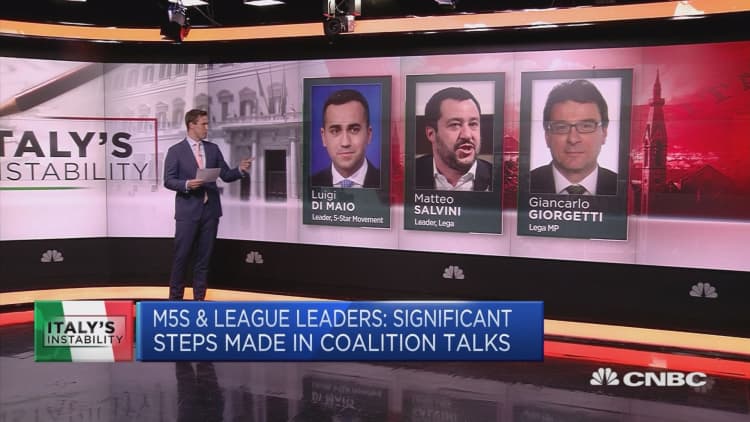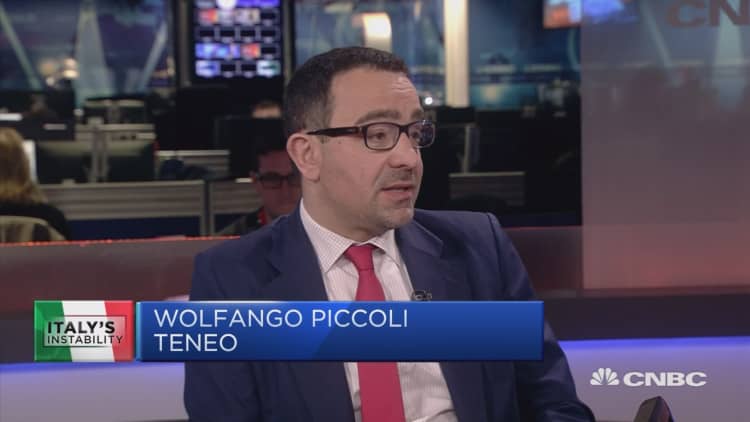Italians could be about to find out what their next government looks like, after more than two months of political stalemate.
The anti-establishment parties, Five Star Movement (M5S) and Lega, have until Sunday to come up with an agreement or Italy will be headed for a repeat of its March election. The two parties said in a statement that they want to "provide a response and a political government for the country as soon as possible" even though previous talks have failed to produce a successful outcome. Back in March, M5S was the most voted for party in the election but didn't receive enough votes to govern alone. Meanwhile, Lega saw a better-than-expected result and was endorsed to form a government with the backing from other right-wing parties.
However, analysts are quite negative about the upcoming executive. Whatever the deal the two parties come up with is not going to fix the country's economic problems, they believe.
Wolfgango Piccoli, managing director at analysis firm Teneo Intelligence, told CNBC's "Squawk Box Europe" that there will be damage on the fiscal front.

"They want a fight with Brussels," he said, regarding the two parties' idea to change EU rules that state member countries should not go over a 3 percent government deficit. Both the Five Star movement and Lega want to increase public spending.
Piccoli added that the concern is not so much that the parties want to spend more, but how they are going to spend the money.
Most analysts expect that the new government will not be in place for a very long time, limiting its ability to actually make any significant changes to the Italian economy.
There will be "some damage on the fiscal side, but given the short time frame, the lack of experience, they never worked together, their ability to put Italy in a difficult spot is somewhat limited," Piccoli added.
Meanwhile, Rabobank analysts said in a note Friday that if the Five Star Movement and Lega reach a deal, "their ideological differences are likely to hamper their ability to affect legislative changes while raising a question mark over their administration's longevity."

M5S is traditionally described as a far-left party, whereas Lega stands on the other side of the political spectrum. Nonetheless, they have common views when it comes to migration and public spending.
Franco Frattini, the former foreign minister of Italy, told CNBC's "Street Signs" Friday that he is confident that whoever the two parties choose to become the next prime minister will have a European perspective.
"Very much will depend on what the two leaders … will decide in the next few hours," he said. But the prime minister "will be somebody who will have a clear European perspective, somebody who will keep in a very clear way the traditional Italian position."
In the meantime, the political impasse has roiled the Italian stock and bond markets this week, but the prospect that negotiations might be finally close to an end has also managed to diminish those losses. The FTSE MIB in Milan rose 0.3 percent Friday morning and the 10-year Italian bond yield rose to 1.8940.


